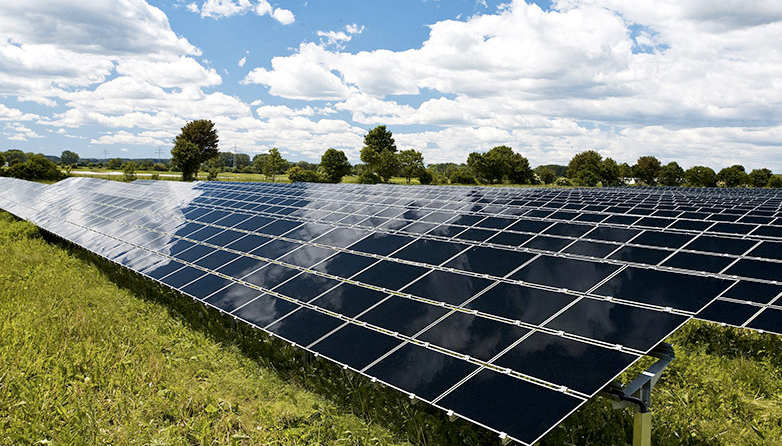
Food output in the UK 'is not being harmed' by the spread of solar panels across the countryside, according to new documents from the Department for Environment, Food and Rural Affairs.
"Given the small areas of land covered by solar farms, currently, it is not possible to argue that, at the national level, there is yet a serious impact on agricultural output," the CAP Direct Payments team told Defra in September last year.
But Environment Secretary Liz Truss told farmers one month after that British agricultural output was being affected by 'ugly' solar panels.
Truss said: "English farmland is some of the best in the world and I want to see it dedicated to growing quality food and crops. I do not want to see its productive potential wasted and its appearance blighted by solar farms. Farming is what our farms are for and it is what keeps our landscape beautiful.
"I am committed to food production in this country and it makes my heart sink to see row upon row of solar panels where once there was a field of wheat or grassland for livestock to graze.That is why I am scrapping farming subsidies for solar fields. Solar panels are best placed on the 250,000 hectares of south facing commercial rooftops where they will not compromise the success of our agricultural industry."
But farming groups were quick to say Truss was 'misguided' on the issue. The National Farmers' Union said solar panels could co-exist with an increase in agricultural productivity.
CLA President Henry Robinson said: “Ms Truss’s comments about solar panels taking land out of food production are misguided and show a clear lack of understanding. Land in the UK has always been used for more than just food production and must continue to be so. The UK must make better use of unused roof space for solar power but this should not be to the exclusion of ground-mounted systems.
“There is no question that the best and most versatile land should be retained for food production wherever possible, and this is safeguarded by both the agricultural and solar industry.”
Mr Robinson said the vital point overlooked by the Environment Secretary is that agricultural activity can continue alongside and underneath solar panels to produce double output of both food and energy, essential in today’s increasing world.
He said: “Solar panels are installations which could be easily removed in 20-25 years time returning the land to its original use. Solar farms can provide a means for farmers to take land out of agricultural production for a number of years and economically return it to full agricultural production again in the future.”
Leonie Greene, head of external affairs at the Solar Trade Association said: “The information that has been brought to light by this FOI shows that this was not a decision made on the basis of evidence, but rather on politics. Our best practice guidance and case studies show that solar farms do not have to be and are not in conflict with food production, and yet the government chose to ignore all this work and unilaterally decide that the grazing land around and under the panels is not agricultural land. You only have to visit a solar farm in person to see that isn’t true – and we would be happy to arrange such a visit for Environment Secretary Liz Truss, but we have so far been told that she unfortunately does not have the time.”
Greene continued: “The industry has shown that, done responsibly, solar does not set food up in conflict with fuel. Defra could do a lot more to disseminate good practice, in the interests of clean energy, biodiversity, the climate and farmers facing increasing weather risk to their livelihoods."
